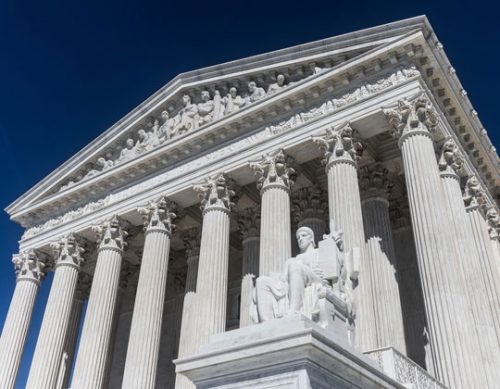

Connie Martinez
SACRAMENTO, Calif. – The California chapter of the Disability Rights Association announced this week that it will denounce the U.S. Supreme Court’s decision in Grants Pass v. Johnson, which allows local governments to ban camps, as harming people with disabilities.
“The Constitution should protect all of us from the arbitrary power of the state, regardless of our status as members of a particular group,” Disability Rights California said in a statement.
But the U.S. Supreme Court has said there is nothing in the Eighth Amendment’s Cruel and Unusual Punishments Clause to stop elected officials from evicting homeless people.
The DRC said it supported a dissenting opinion by Justice Maria Sotomayor, which acknowledged that “individuals with a history of mental illness are at increased risk of homelessness” and that “fewer than 5 percent of housing in the United States is accessible to people with moderate mobility impairments.”
“Grants Pass will especially hurt people of color, Native Americans, LGBTQIA2S+ people, victims of domestic violence, and veterans of all backgrounds,” the DRC said, adding, “Instead of fixing the failed policies that lead to homelessness, elected officials have gained one more tool to support efforts to shelter and institutionalize homeless people.”
The Democratic Republic of Congo said criminalization was not a solution to homelessness, arguing that “wiping out individuals denies their humanity. It traps people in a vicious cycle of poverty and institutionalization.”
The statement quoted Will B., a former DRC client, as saying, “I tried to continue my upward climb, but the sheriff kept pushing me down and not allowing me to succeed. I was scared to climb because I knew I would be pushed down.”
“But as long as our clients keep fighting, DRC will keep fighting,” the DRC said.
Former camp resident David R. said, “This is how it works. There are people who are with you, not against you. Equal help is available to everyone. Compassionate case management. I received love, not judgement.”
DRC fought back against the Grants Pass ruling with ongoing compassionate advocacy in California and across the country, asserting that it is committed to “making voluntary, community-based care the standard and providing abundant, comprehensive, affordable, and accessible housing.”
The DRC added that it expects “our society to come together to ‘address the complexities of homelessness facing the most vulnerable among us.’… That responsibility is shared by vulnerable people, the states and cities where they live, and each of us.”
One former DRC client said, “I was trying to move up from my place in the park. I wasn’t there because I wanted to live in the park, I was forced to live there. I wanted to work and be part of society. Just as I was trying to move up, the police took it all away from me. Every ticket and stop brought me back to the beginning. How did I get out if the police brought me back down again?”
The Democratic Republic of Congo called on governments to stop evictions and continue efforts to “protect, promote and strengthen the rights and opportunities for people with disabilities.”

